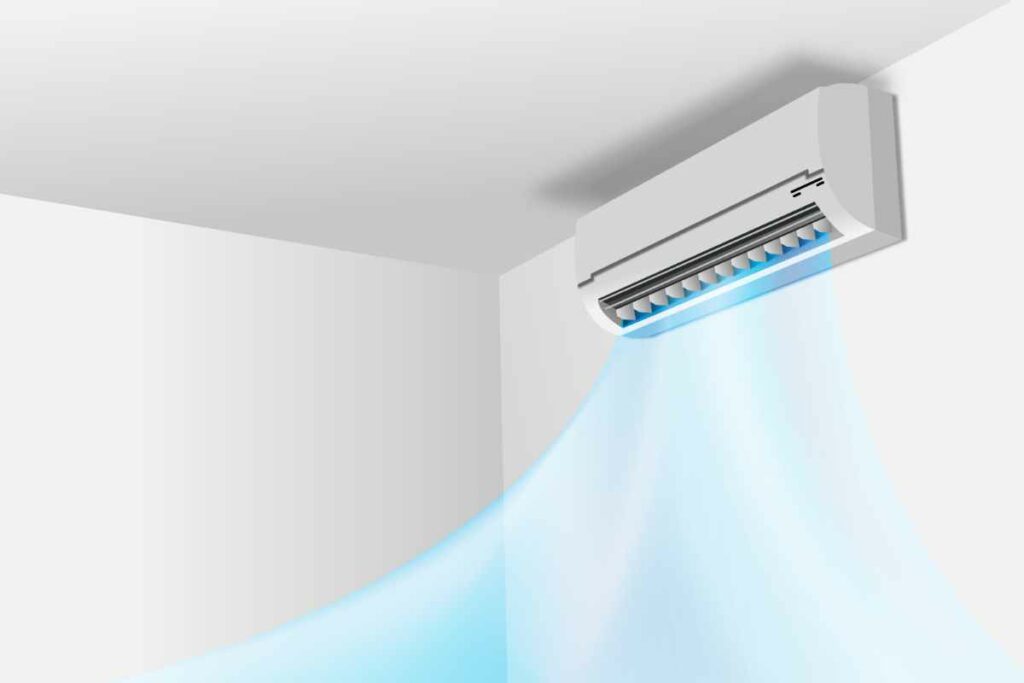In the heat of summer, there’s nothing more comforting than stepping into a cool, air-conditioned room. But have you ever wondered how your air conditioner (AC) works to create this refreshing environment? Air conditioning has become an essential part of our daily lives, making our homes, offices, and cars more comfortable. Understanding the science behind your air conditioning system can help you appreciate its functionality, troubleshoot issues, and make informed choices about maintenance and upgrades.
In this blog post, we’ll explore the fascinating world of air conditioning, from the physics of cooling to emerging technologies shaping the future of the industry.
How Air Conditioners Work
At its core, an air conditioner operates on simple principles of heat transfer and phase change. The system comprises several key components, each playing a crucial role in the cooling process. These AC components include the compressor, condenser, evaporator, and expansion valve.
The compressor is the heart of the AC unit. It compresses the refrigerant gas, raising its temperature and pressure. This high-pressure gas then moves to the condenser, where it releases heat and transforms into a high-pressure liquid. The liquid refrigerant travels through the expansion valve to the evaporator, where it evaporates and absorbs heat from the surrounding air, cooling it in the process. Finally, the refrigerant returns to the compressor to repeat the cycle.
Understanding these fundamental components helps demystify the air conditioning process, making it easier to appreciate how your AC keeps you cool.
The Physics of Cooling
Air conditioning relies on basic principles of thermodynamics to create a comfortable indoor environment. The process involves transferring heat from one place to another, using the refrigerant as a medium.
The first law of thermodynamics states that energy cannot be created or destroyed, only transferred. An air conditioner operates by transferring heat from inside your home to the outside environment. The refrigerant’s phase change—from gas to liquid and back again—facilitates this heat transfer.
The second law of thermodynamics states that heat naturally flows from a hotter object to a cooler one. By compressing and expanding the refrigerant, the AC unit manipulates these natural processes to cool your living space effectively. Essentially, the air conditioner removes heat from the indoor air and releases it outside, maintaining a comfortable indoor temperature.
Energy Efficiency and Environmental Impact
In today’s world, energy efficiency is more important than ever. Choosing an energy-efficient air conditioner can significantly reduce your energy consumption and lower your utility bills. Additionally, energy-efficient AC units have a smaller environmental footprint, helping to combat climate change.
Energy efficiency is often measured using the Seasonal Energy Efficiency Ratio (SEER) or the Energy Efficiency Ratio (EER). A higher SEER or EER rating indicates a more efficient unit. When selecting an AC unit, look for models with high ratings to ensure optimal performance and minimal environmental impact.
Furthermore, modern air conditioners use environmentally friendly refrigerants, such as R-410A, which have a lower Global Warming Potential (GWP) compared to older refrigerants like R-22. By choosing an eco-friendly AC unit, you contribute to reducing greenhouse gas emissions and protecting the planet.
Common AC Issues and Solutions
Even the most well-maintained air conditioners can experience issues from time to time. Understanding common problems and their solutions can help you troubleshoot and maintain your AC unit for optimal performance.
One common issue is insufficient cooling. This problem can result from dirty air filters, blocked vents, or low refrigerant levels. Regularly cleaning or replacing air filters and ensuring proper airflow can help resolve this issue.
Another frequent problem is refrigerant leaks. Leaks can cause your AC unit to lose its cooling efficiency and may require professional repair. If you suspect a refrigerant leak, contact a qualified technician to diagnose and fix the issue.
Finally, regular maintenance is essential for keeping your air conditioner in top condition. Schedule annual check-ups with a professional to inspect and clean your AC unit, ensuring it operates efficiently and effectively throughout the year.
The Future of Air Conditioning
The air conditioning industry is continually evolving, with new technologies and innovations shaping the future of cooling. One exciting development is the advent of smart air conditioners, which allow users to control their AC units remotely via smartphone apps. These smart-systems offer greater convenience and energy savings by enabling users to adjust settings based on their schedules and preferences.
Another promising technology is variable refrigerant flow (VRF) systems. VRF systems provide precise temperature control and energy efficiency by adjusting the refrigerant flow to match the cooling needs of different zones within a building. This adaptability makes VRF systems an excellent choice for commercial and large residential spaces.
Additionally, advancements in renewable energy integration are paving the way for more sustainable air conditioning solutions. Solar-powered AC units, for example, harness the sun’s energy to power cooling systems, reducing reliance on fossil fuels and lowering carbon emissions.
Conclusion
Air conditioning is a marvel of modern engineering, combining principles of thermodynamics, heat transfer, and phase change to create comfortable indoor environments. By understanding the science behind your air conditioner, you can better appreciate its functionality and make informed decisions about maintenance, upgrades, and energy efficiency.
From the physics of cooling to the latest technological advancements, the world of air conditioning is constantly evolving. By staying informed and proactive, you can ensure your AC unit operates efficiently, providing you with the comfort you need while minimizing environmental impact.


